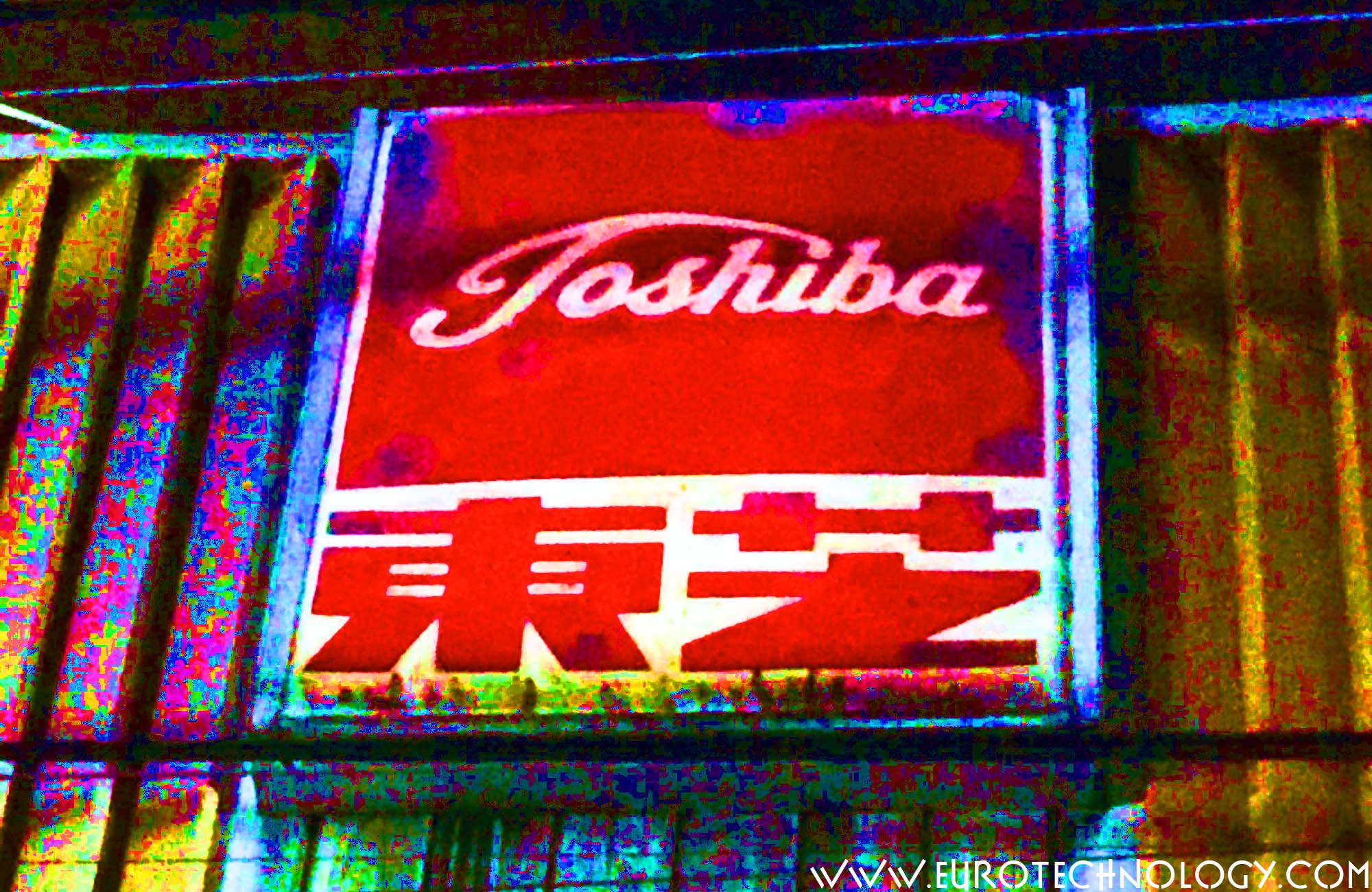Toshiba is expected to announce write-off provisions on the order of US$ 6 billion today
Toshiba is on Tokyo Stock Exchange warning list for possible delisting in March 2017

This morning 7:30am I was interviewed on BBC TV Asia Business Report about an update of Toshiba’s ongoing crisis, which has been 20 years in the making.
Here some notes in preparation for my interview.
What is Toshiba’s situation now?
Toshiba’s market cap today is YEN 1024 billion = US$ 9.6 billion.
Toshiba is expected today to announce write-off provisions on the order of US$ 6 billion.
Toshiba owes about US$ 5 billion to main banks as follows:
Mizuho YEN 183.4 billion
SMBC YEN 176.8 billion
Sumitomo Mitsui Trust Holdings YEN 131.0 billion
BTMU YEN 111.2 billion
Total YEN 602.4 billion = US$ 5.3 billion
Toshiba is on notice for delisting by the Tokyo and Nagoya Stock Exchanges, and faces the risk of being delisted by March 15, 2017, i.e. in about 4 weeks from now.
Toshiba is trying to raise capital e.g. by seeking investment in the IC/flash memory division, however, Toshiba seeks to keep control, so Toshiba is trying to raise a minority share, or non-voting shares or similar, in order not to lose control.
How did Toshiba get into a situation to potentially need to write off US$ 6 billion?
Toshiba acquired 87% of the US nuclear equipment manufacturer Westinghouse.
While Westinghouse is a famous name, what Toshiba actually acquired seems to have gone through a period of restructuring.
For an analysis see “Westinghouse: Origins and Effects of the Downfall of a Nuclear Giant”, in the World Nuclear Industry Status Report: https://www.worldnuclearreport.org/Westinghouse-Origins-and-Effects-of-the-Downfall-of-a-Nuclear-Giant.html
In 2015 Toshiba acquired the construction company SHAW’s assets from the Chicago Bridge & Iron Company CB&I for US$ 229 million plus assumed liabilities. CB&I had acquired SHAW for US$ 3.3 billion in July 2012, and SHAW has on the order of US$ 2 billion annual sales.
Why did Toshiba acquire a company for US$229 million, which has US$ 2 billion annual sales, and which was in 2012 acquired for US$ 3.3 billion? Which factors reduced the value of this company from US$ 3.3 billion to US$ 229 million within the 3 years from 2012 to 2015?
Presumably because there are large liabilities arising from nuclear construction, which Toshiba now seems to have to assume.
Cost overruns and delays are not uncommon in the nuclear industry. Similar issues happened with a Finnish nuclear reactor recently, see: https://en.wikipedia.org/wiki/Olkiluoto_Nuclear_Power_Plant
What is likely to happen now with Toshiba? Is Toshiba too big to fail?
Difficult to say what will happen. Toshiba is a huge corporate group with about 200,000 employees and many factories in many countries, so clearly Toshiba is not going to disappear without trace.
The immediate risk is that Tokyo Stock Exchange carries out its warning, and delists Toshiba, which will further increase Toshiba’s ability to raise capital. In the case of a delisting, private equity, and/or government might invest and restructure, and Toshiba might be split up. For example, Toshiba’s nuclear Westinghouse division is totally separate from its very successful flash memory division, there is not much business logic in having both under one holding company.
Impact on UK
Toshiba acquired 60% of UK based NuGeneration with the view to build nuclear power stations in the UK. This project requires Toshiba to contribute to the funding of the nuclear project, for which Toshiba would probably need a financially healthy partner.
What is the big picture? How did Toshiba get into this crisis?
Toshiba’s crisis has been building up for 20 years, and is in my view a consequence of corporate governance issues over a long time.
Essentially, Toshiba should have been reformed 20 years ago from the top down.
Japan’s 8 electronics giants have had essentially no growth and no profits for 20 years. This tragedy has been obvious for many years now, and was a big contributing factor for Japan’s government to reform Japan’s corporate governance laws and regulations, see:
- Corporate governance reforms (ACCJ Journal)
- Changing the way Japanese corporations are managed (Embassy of Sweden, Swedish Chamber of Commerce)
- Changing Japanese management – a talk on 6 October 2016 at the Embassy of Sweden
- Corporate governance reforms in Japan – practical views of a Board Director
Toshiba’s Board of Directors was exchanged in September 2015, and now includes several very capable and experienced Japanese independent Board Directors, but unlike Hitachi, even today neither Toshiba’s Board of Directors, nor Toshiba’s Executive Board include one single foreigner.
One might think that a huge global group like Toshiba with complex businesses around the globe might benefit from a variety of view points and experiences from different countries at Supervisory Board and Executive Board level – not all just from one single country. Japanese corporations including Hitachi, SoftBank, Nissan and a small number of others are now recognizing the benefits of diversity of experience and viewpoints at Supervisory Board and Executive Board level.
We can only hope that Toshiba’s executives and Board Directors have the experience and ability to solve the extremely complex issues deep inside the bowels of the US nuclear construction industry – far away on the other side of the world.
Japan electronics industries – mono zukuri
Copyright (c) 2017-2019 Eurotechnology Japan KK All Rights Reserved

Comments and discussions